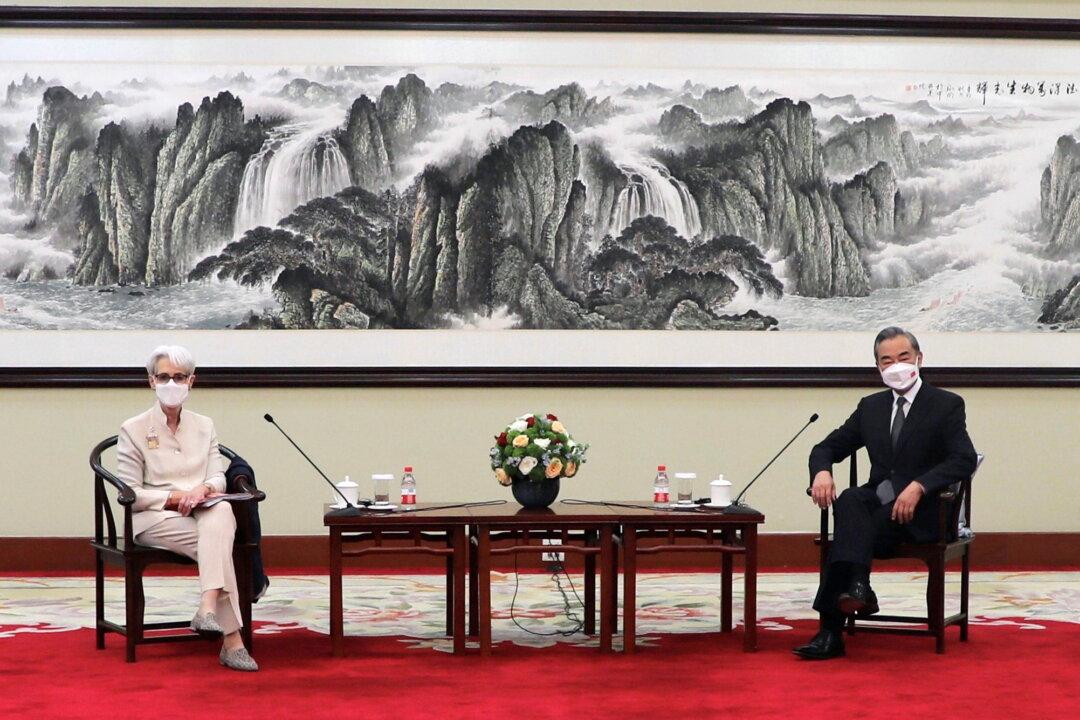The Chinese regime bombarded U.S. Deputy Secretary of State Wendy Sherman with complaints and accusations during her in-person visit to China on July 26. The talks were reminiscent of the brazen tone of Chinese officials during the first high-level meeting in Alaska in March, dubbed “wolf warrior” diplomacy, as the Biden administration attempts a new round of “engaging” with China.
Sherman met with China’s Vice Foreign Minister Xie Feng on July 26 in the Chinese port city of Tianjin, before meeting with Foreign Minister Wang Yi. Sherman is the highest-ranking Biden administration official to visit China.





